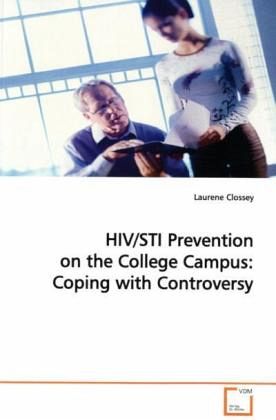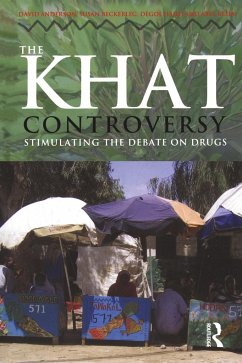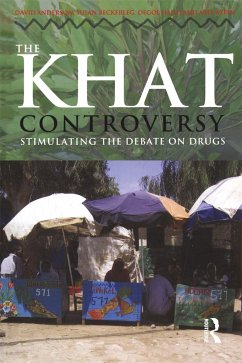
HIV/STI Prevention on the College Campus: Coping with Controversy
Versandkostenfrei!
Versandfertig in 6-10 Tagen
45,99 €
inkl. MwSt.

PAYBACK Punkte
23 °P sammeln!
To increase understanding of college-based HIV-STI prevention programs, this exploratory qualitative study investigates four areas: (1) the types of controversies that college sexual health programming can encounter; (2) how these controversies are managed; (3) strategies used by college sexual health providers to prevent and contain controversy; (4) the effect the higher education organization has on the manifestation of controversy, its prevention and management. Findings suggest that college sexual health programs commonly endure morally loaded challenges, student indifference, and question...
To increase understanding of college-based HIV-STI
prevention programs, this exploratory qualitative
study investigates four areas: (1) the types of
controversies that college sexual health programming
can encounter; (2) how these controversies are
managed; (3) strategies used by college sexual
health providers to prevent and contain controversy;
(4) the effect the higher education organization has
on the manifestation of controversy, its prevention
and management. Findings suggest that college sexual
health programs commonly endure morally loaded
challenges, student indifference, and questions from
administration regarding the expenditure of scarce
resources in a controversial area that commands
little student attention. College employees and
officials involved in sexual health programming
engage in a variety of strategies to prevent and
contain conflict to keep programs intact. This book
should provide value to sexual health educators, as
well as professionals who are interested in ways
that controversial issues may be managed in
organizations.
prevention programs, this exploratory qualitative
study investigates four areas: (1) the types of
controversies that college sexual health programming
can encounter; (2) how these controversies are
managed; (3) strategies used by college sexual
health providers to prevent and contain controversy;
(4) the effect the higher education organization has
on the manifestation of controversy, its prevention
and management. Findings suggest that college sexual
health programs commonly endure morally loaded
challenges, student indifference, and questions from
administration regarding the expenditure of scarce
resources in a controversial area that commands
little student attention. College employees and
officials involved in sexual health programming
engage in a variety of strategies to prevent and
contain conflict to keep programs intact. This book
should provide value to sexual health educators, as
well as professionals who are interested in ways
that controversial issues may be managed in
organizations.












